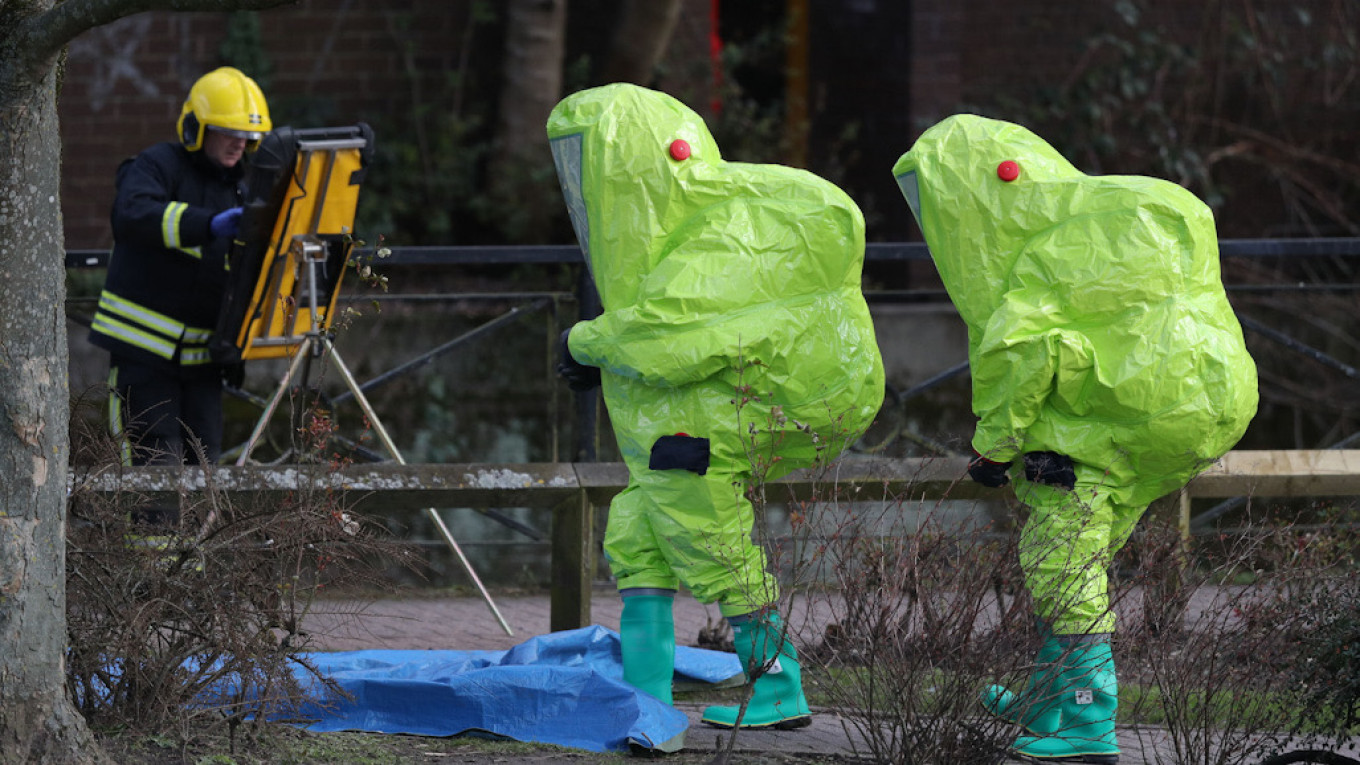
Russian military scientists continued working on the Novichok nerve agent’s development long after Moscow said it destroyed its chemical weapons stockpiles, an international investigation said Friday.
The investigation comes amid mounting questions in the West over Russia’s alleged use of chemical weapons on foreign and domestic soil, accusations that Moscow denies. The European Union and Britain have slapped sanctions on Russia over the suspected Novichok poisonings of a former Russian double agent in Britain in 2018 and Russian opposition leader Alexei Navalny this summer.
While Russia was said to have destroyed its last chemical weapons arsenal in 2017, the clandestine Novichok development program continued under cover of civilian research, the Bellingcat investigative website said in a joint year-long investigation with Russia’s The Insider news website, the U.S.-funded RFE/RL media group and Germany’s Der Spiegel weekly.
Obtained phone logs showed close coordination between the state institutions behind Novichok’s continued development and the GRU military intelligence agency’s Unit 29155 that has been linked to several Novichok poisonings, the outlets said.
Two of the institutes are under EU sanctions for their work on Russia’s nerve agent program, the outlets reported, while two other institutes worked outside the focus of Western intelligence services.
“Russia continued its Novichok development program long beyond the officially announced closure date,” Bellingcat said.
Previous reporting said Unit 29155 oversaw the Skripal poisoning, the poisoning of an arms smuggler in Bulgaria in 2015 and other destabilizing activities across Europe.
The head of one of the top-secret state institutes, chemist Sergei Chepur, made at least 65 calls and text messages to the head of Unit 29155 between May 2017 and September 2019, the latest investigation said. The phone logs also showed Chepur repeatedly communicating with three other members of the unit.
Metadata also reportedly showed Chepur visiting the GRU headquarters in northern Moscow days before the early 2018 poisoning of former double agent Sergei Skripal and his daughter. Three members of Unit 29155 were also said to have been in the building at the same time.
The scientists identified in the investigative report either hung up or denied their involvement when reached by phone.
“Stop lying to everyone including to yourselves,” Chepur told Bellingcat.
